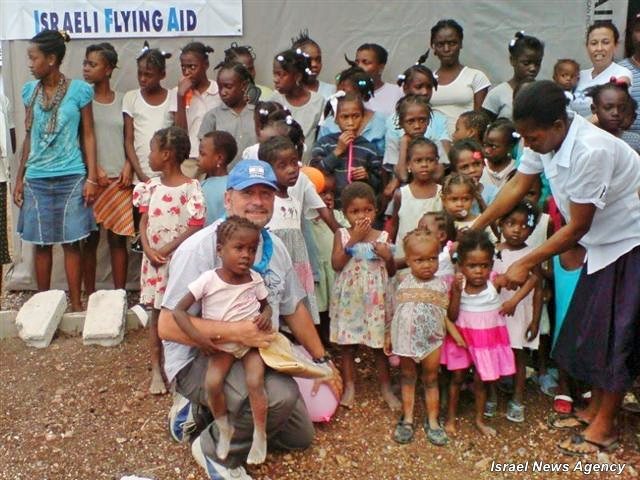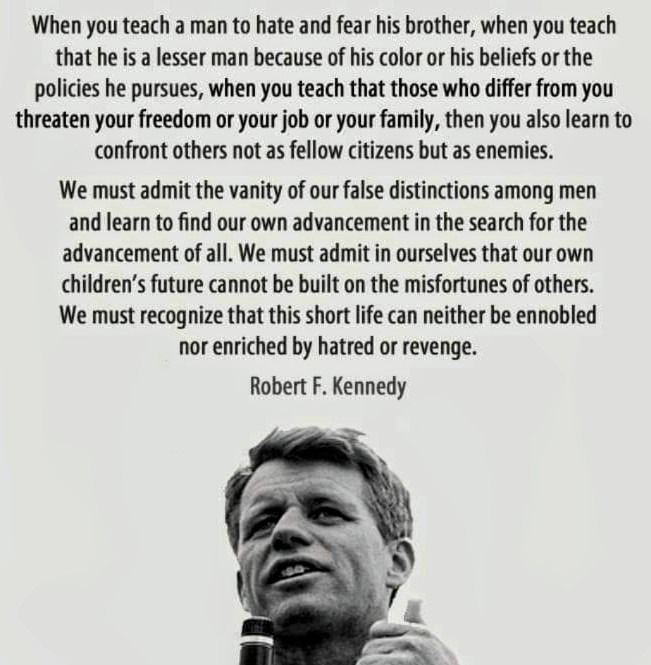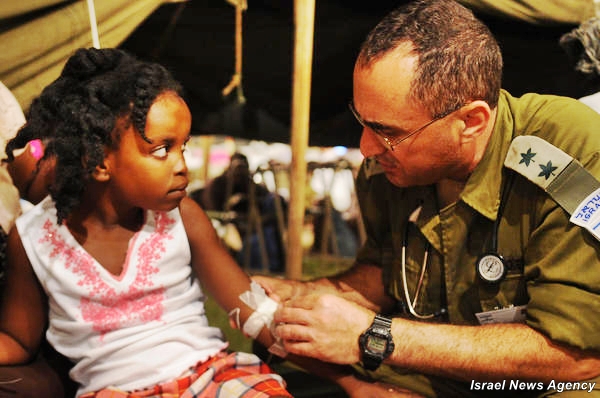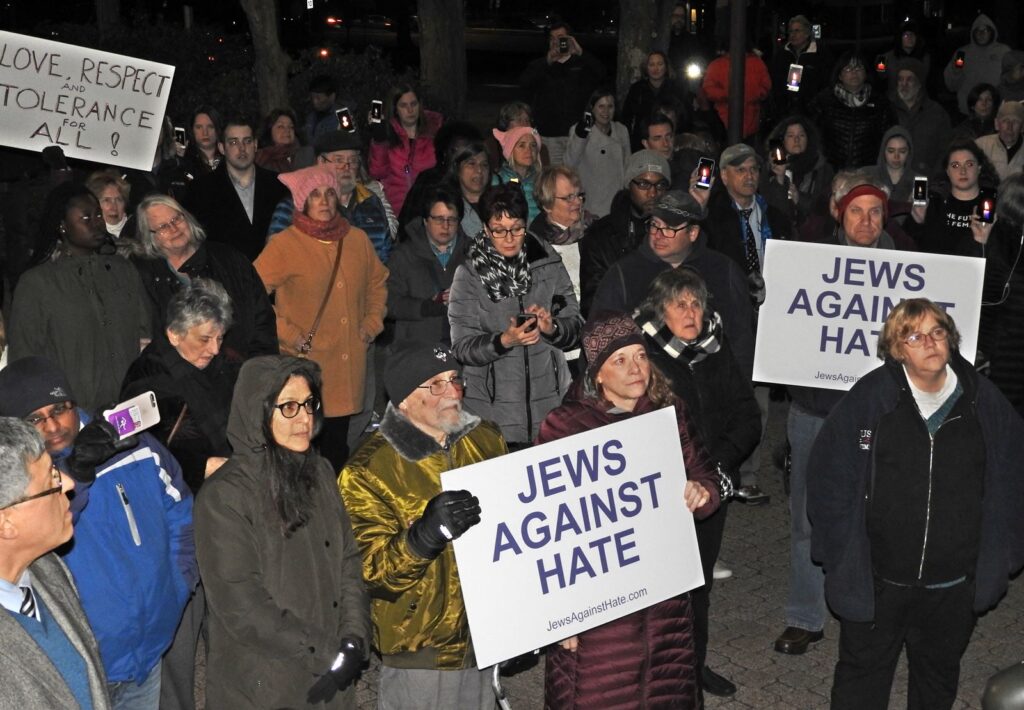
By Rabbi Randall J. Konigsburg
Connecticut — November 12, 2022 … I spent the early part of this week in St. Louis at the Rabbinical Assembly Convention. It has been about three years since the last convention because of COVID so this convention was very special.
It felt good to be back together but only about 250 out of 1700 rabbis attended. Some of the attendance was lost because there is still a lot of fear about COVID but also, because it was not on the “east coast.” Many rabbis, I guess, did not want to take the time away.
That was a great mistake. The convention was well organized, the food was good (after all, it was at a Ritz Carlton – we got a good rate because conventions at hotels are hard to come by these days.) It was great to reconnect with friends and colleagues and this year, there were many young rabbis attending their first convention.
As always, there was plenty of learning at a high level. We were right across from Washington University and the Jewish Theological Seminary also sent several professors to teach us rabbis. Each evening we had a chance to share with colleagues the good and the problematic aspects of our work, and we had a chance to collaborate on better ways to address our challenges. In some ways, it is not the sessions that are so important, but the meetings in the hallways where the important questions are asked, and we guide each other to answers that might fit our needs.
Many of the rabbis present this year were not pulpit rabbis so there were many sessions to address their needs in the not-for-profit sector and in the field of education where they are working. It was a great convention. As you know, our daughter Ashira is the COO of the Rabbinical Assembly, so we got to have almost every meal with her, our son-in-law, and with our granddaughter, Arya. It doesn’t get any better than that.
I was chosen to be a part of a special series of sessions about the challenges for Rabbis and Synagogues in this difficult period of time. It was called, “Leading in Liminal Times.” Liminal Times refers to times when we find ourselves leaving our familiar work and relationships and we have not yet discovered what the future holds for us. We find ourselves standing in the doorway, on the doorstep, unable to go back but unsure where we are going. It is a time when we can rethink who we are and what we are doing and where we want to go as we wait patiently for the future to show us what new challenges we will need to address. That could be a sermon all in itself but there was something else that happened at convention that I believe is more important to share this Shabbat.
On Monday night we listened to a panel discussion on the religious relationships that had been
forged in St Louis since the death of Michael Brown in Fergeson, MO a suburb of St. Louis. Two
rabbis, a Conservative Rabbi and a Reform Rabbi, together with two Christian ministers, talked
about how the Jewish community supported the Black community during the unrest that
followed the death of Michael Brown, and how the Black community supported the Jewish
community after the Tree of Life shootings in Pittsburgh. How they all stood together to fight
the antisemitism that threatened their alliance. It was an open, honest conversation and it
opened more than a few eyes about how these two communities can get along.
It was the Reform Rabbi, Rabbi Susan Talve, who woke us up as she described her close
relationship with a Black United Church of Christ minister. They call themselves “sisters”. Rabbi
Talve noted that our parsha this week, Vayera, contained two stories, both of them equally
problematic for those who study the Bible and for those who are casual readers as well.
In one chapter, Sarah, our matriarch, insists to Abraham, that he send away his concubine,
Hagar, that is, his second wife, and to send away the son Hagar had given birth to over thirteen
years earlier, Ishmael. Abraham does not want to send away his first-born son, but Sarah
insists, and God tells Abraham to listen to Sarah. Abraham sends mother and son away, into the
wilderness and it is questionable if he has given them enough food and water for the journey.

How does a father send away a son? Hagar and Ishmael almost die in the desert until God
comes and saves them and then promises Hagar that Ishmael will be the founder of a new nation.
In the very next chapter, God tells Abraham to sacrifice his own son as a burnt offering to God.
Without any argument at all, Abraham departs with Isaac, early in the morning, on a three-day journey to the place where the sacrifice will happen. How does a father sacrifice a son? But Abraham does what he is told. He finds the place, builds the alter and raises up the knife to kill his son and only at the last minute does God stop the sacrifice and replaces the offering of Isaac with an offering of a ram. Abraham and Isaac depart that place but in different directions and the bible will not record any further conversations between father and son.
These two stories are stories that we should all know well. We read exactly these chapters on
Rosh Hashana. We read about some of the worst examples of parenting we can possibly
imagine on the most holy days at the beginning of the year. The Sages tell us that we read these
two stories to teach us that even great people can make terrible mistakes and still find forgiveness.
But Rabbi Talve, reminded us Rabbis of another important fact of these two stories side by side.
She said, “If we are not prepared to take care of the children of others, the next chapter will
have us sacrificing our own children.” It was that simple teaching that took all of our breath away.
Was it easier for Abraham to sacrifice Isaac after sending Ishmael unprotected and unprepared
into the desert? Even if God demands it, does the first story make the second one not only
possible but believable? We might try and deflect the horror of these stories by claiming that
they are only stories. We don’t know if they really happened. We don’t know if there was a real
Abraham or that this was just a founding myth about the Jewish People. As the members of my
Bible class know so well, the historical accuracy of these two stories is not the point. There
must be some underlying message that we, as Jews, are supposed to learn here. And Rabbi
Talve cut right to the heart of the matter. She is correct; once we are able to give one child
away, it makes it easier and maybe more likely that we will come to sacrifice the other.
Rabbi Talve was speaking directly to the heart of Black Lives Matter. If we are able to look the
other way when young Black children and innocent Black men and women, like Michael Brown,
George Floyd and Breonna Taylor are killed, then what can we expect when it is Jews who are
being shot in Pittsburg, Poway and as we face the rise of Antisemitism across this country?
If we don’t stand with those who lost their children in the myriad school shootings, how can we
expect a different reaction when Jews are being shot? If we don’t stand against racism, then
who will stand up for us when the hatred will ultimately be turned on Jews?

We all have learned at one time or another, that Antisemitism is the canary in the coal mine.
Jews are often the first to be attacked and then other groups soon follow.
Jews have a long and ancient history of anti-Jewish sentiment. Whenever something bad might happen, it was always easier to blame the Jews. This history has made us insular; we are closed off from the rest of society. We protect our own and when it is someone else being attacked, we keep our heads down lest the attackers turn on us.
The ADL knows better. They know that if we don’t fight against all forms of prejudice and
bigotry, then it is only a matter of time before we will find ourselves in the cross hairs. If we
don’t show up for injustice against any person at any time, be they black, brown, indigenous,
homosexual, transsexual, and yes even when the victims of hate are Arabs or those that might
look like Arabs; If we can’t show up to protect them, then who will there be who would stick up
for us? Bigots start their attacks by trying to fracture the relationships between the different
elements of society. As Martin Niemöller, in his famous poem noted that first they come
for others, and if we don’t protest on their account, then they will eventually come for
us and there will be no one to speak up to protect us.
I say this both as a Jew and as an American.
This country has become a great nation due to the diversity of our citizens. For almost all of our history, there have been those who first seek to stop immigration, demonizing refugees who look different. But every age of prosperity and growth in this country, it almost always happened when immigrants and refugees were made welcome.
We Jews like to think of ourselves as welcoming to all strangers, but last year, Heather Miller, synagogue president, Rabbinical student, Jewish mother, and Black woman, shared with us the many micro aggressions that Black Jews must face in our world today.
How do we feel when someone says, “Gee, you don’t look Jewish.”? But Black Jews all too often, hear that from other Jews! If we can’t accept the children that don’t look like us, we end up sacrificing our own children. We end up with children growing up and not wanting to be Jewish if they believe that the Judaism we teach through our actions, does
not stand up for Justice and diversity.

The Torah is clear; we must stand up for everyone or we risk losing it all. We must show up for every act of terror and racism or there will be no one to stand up for us. Injustice is injustice, bigotry is bigotry, hate is hate; we can’t let ourselves justify our own racism and bigotry because we delude ourselves that we are not like everyone else.
Ishmael and Isaac reunite to bury their father. The Torah does not tell us what they said to each other at that painful moment for both of them. They were separated by parents who thought the two boys could not get along. Abraham indeed did lose both his sons. Any child who dies in an act of violence in this country makes it easier for the next person who plots violence against children. Any adult who dies in an act of violence makes the next act of violence easier. It does not matter the race, gender, or sexual orientation of the first one to die. Every death matters and we need to care, to show our grief and to stand with the victims. Every act of bigotry matters and we need to share
their pain and stand with the victims. Every act of injustice matters and we need to stand with the victims. Or as the Rabbis say in the Talmud, “once the destroyer is set loose, it does not distinguish between those who are good or bad.”
My lesson today is that we need to care. To care for others in their distress so they will stand by us, as sisters and brothers, and not let hate drive us all apart. Let us look into our own souls and then be there to support, defend and stand up for truth, justice, life, and liberty for all.
May God be with us as we pursue Justice every day, as we say…..
Amen and Shabbat Shalom
Edited by Joel Leyden
Join JewsAgainstHate.com
